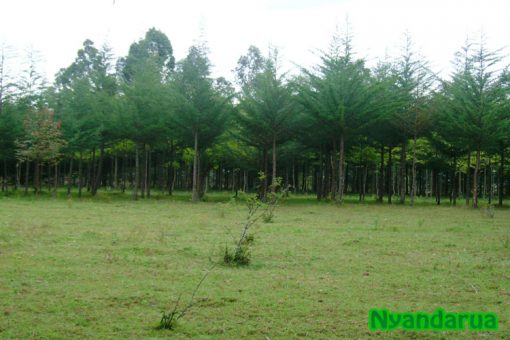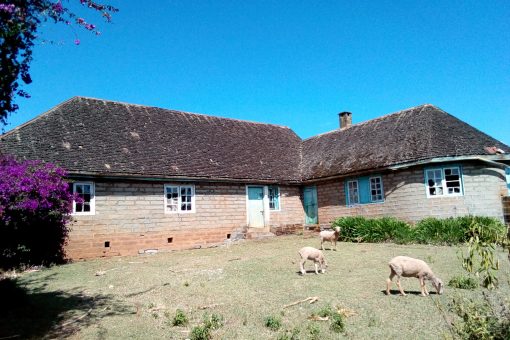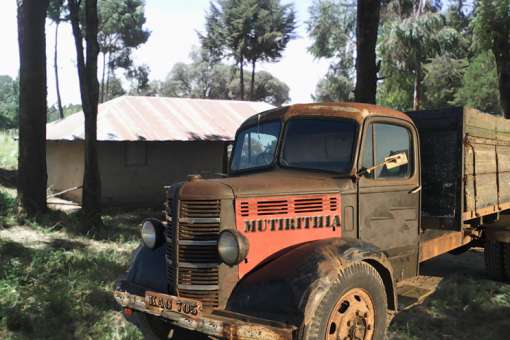Bhachu was the only Indian (Muhiindi) in OlKalou. Like Mukurino, we did not know when Bhachu came to OlKalou or where he came from. All we knew was that he owned the biggest hardware store in town. Bhachu ran the store assisted by his two daughters. There were a few local workers whose job was mainly to load and unload heavy supplies onto pickups and trucks. Heavy items like iron sheets, bags of cement and gas cylinders. They also climbed ladders to reach for merchandise that was on the top shelves that Bhachu and his daughters could not reach. They also pumped Kerosene for customers.
Bhachu modernized OlKalou a lot. Kerosene was widely used for lighting hurricane lamps (tawa wa rutambi or tawa wa ngirathi) that were used in every home back then, since there was no electricity outside of OlKalou town. Working families like teachers, nurses, market traders and others, who lived in rented rooms in town also used kerosene for cooking on their kerosene stoves. Families bought Kerosene in the amounts they could afford. Some bought in 300ml soda bottles while others bought in 5 liter jerricans. There were shops that sold Kerosene, you could smell it from a distance. They stored kerosene in steel containers (marebe) and dispensed it using an improvised (jua kali) metal pump that was not only slow, it also made a sharp whizzing sound with every pump, ginyi ginyi ginyi. Some sounds never leave your brain. That is one of them and I can still hear it in my head.
Bhachu introduced an automatic pump for Kerosene. It was like a petrol station pump only that it was right outside the veranda of his shop. There were two huge clear glass bottles built at the top of the pump. They stayed full of Kerosene and when the attendant started pumping for a customer, you could see the Kerosene churning inside as it reduced in amount. When the attendant stopped pumping and replaced the nozzle, the clear “bottles” filled up again ready for the next customer.
When this was first introduced, both children and adults stopped and stared in wonder. This was a modernized, faster and cleaner way of dispensing Kerosene, thanks to Bhachu.
Sometime in the 1980s, Bhachu and his family left OlKalou and we never saw or heard about them again. There was no farewell party for Bhachu. We shopped at his store one day and the next time we visited it was closed, which was rather unusual for a shop that remained open 7 days a week throughout our childhood. We did not put much thought into it at the time, we naturally thought he had an important matter to attend to and would be open the next time we visited. It never happened. Weeks turned into months and it finally dawned on us Bhachu was gone for good, without saying goodbye, without a “going out of business” notice or a forwarding address. Nothing. Everybody wondered what happened to Bhachu. It was hard to get information on Bhachu because we did not know him and his family while they lived and did business in Olkalou, other than being his customers at his shop, an interaction that was strictly business. Bhachu and his family kept to themselves with zero socialization with the locals, I guess because of the cultural differences which everybody acknowledged and respected. They lived behind their shop and none of us had ever seen Bhachu or his daughters anywhere else outside of their shop. There was a door behind the counter that opened to the back of their shop, which was their home. Bhachu and his family closed their shop’s front doors from inside and retreated to their “home” at the back. That is why locals had zero chance of interacting with the Bhachu’s, but we still considered them part of the OlKalou family. But now, with Bhachu gone, we did not have anybody to inquire from about his whereabouts. And there has not been another Indian in Olkalou since Bhachu. I still miss Bhachu.
Like Mukurino, Bhachu offered a valuable service to the young farmers of OlKalou. His shop carried a variety of merchandise that farmers needed for the development of their newly acquired farms. Although his shop was generally categorized as Hardware store, it was more of a General Store or a supermarket where you could find almost anything. He sold construction materials, fencing materials, farming tools, household tools, animal feed and anything in between. There were galvanized iron sheets (mabati), nails of every kind, cement, paint, barbed wire, wheelbarrows, milk cans and buckets, hoes, forks, axes, machetes, garden shears, pruning shears, gunny bags, charcoal jikos, kerosene stoves, hurricane lamps, animal feed like dairy meal, chicken feed, McLick salts, kerosene, kitchenware like sufurias, steel wok (karai ka ngima) and much much more. Bhachu’s hardware is where we first saw a propane gas cylinder. His shop was so well stocked, if you did not find an item at Bhachu’s, chances were you could not find it in any other shop in OlKalou, you may have to travel 35 kilometers to Nyahururu to find it.
When you look around Olkalou today, every fence and every house constructed in the 1960s and 70s, the materials used must have come from Bhachu’s hardware. And for that, our only Indian in OlKalou, we are eternally grateful. Asante sana Bhachu. Namaste.
Does anybody have information on Bhachu and his family? I sure would like to know, maybe even hear from his family if they are reading this.



